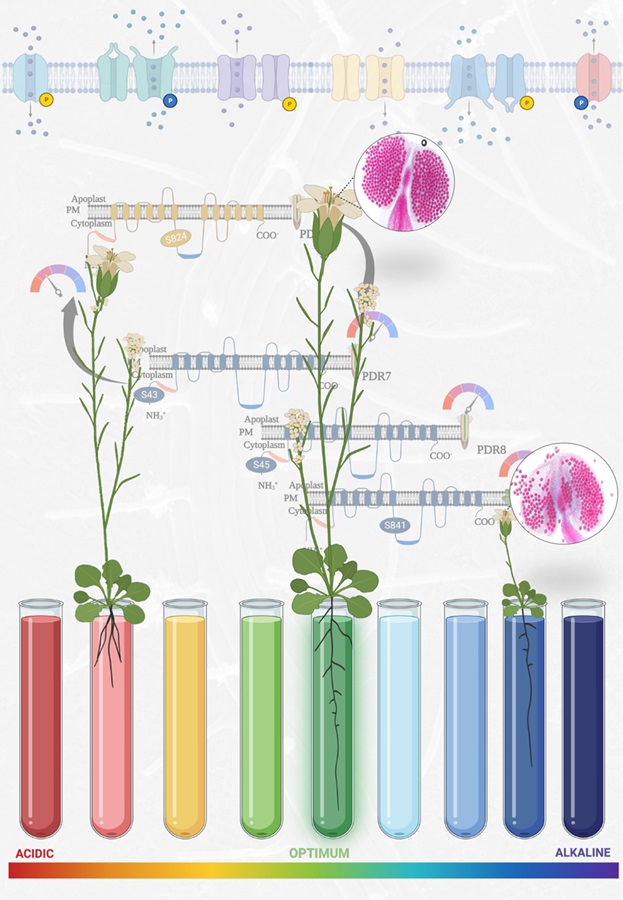[Wolfgang Schmidt] Protein Phosphorylation Orchestrates Acclimations to Ambient pH
POST:Environment pH (pHe) is a key parameter dictating a surfeit of conditions critical to plant survival and fitness. To elucidate the mechanisms that recalibrate cytoplasmic and apoplastic pH homeostasis, Dharmesh Jain and Wolfgang Schmidt conducted a comprehensive proteomic/phosphoproteomic inventory of plants subjected to transient exposure to acidic or alkaline pH, an approach that covered the majority of protein-coding genes of the reference plant Arabidopsis thaliana. The survey, recently published in Molecular & Cellular Proteomics, revealed a large set so far undocumented pHe-dependent phospho-sites, indicative of extensive post-translational regulation of proteins involved in the acclimation to pHe. Unexpectedly, the effect of pHe was not restricted to roots and provoked pronounced changes in the leaf proteome. In both roots and shoots, the plant-specific TPLATE complex components AtEH1 and AtEH2–essential for clathrin-mediated endocytosis–were differentially phosphorylated at multiple sites in response to pHe, possibly regulating the (pHe-dependent) turnover of cargo proteins involved in signaling or regulating pHcyt and pHapo.
Link: https://www.mcponline.org/article/S1535-9476(23)00196-2/fulltext
